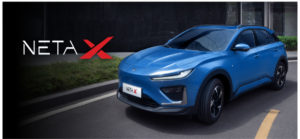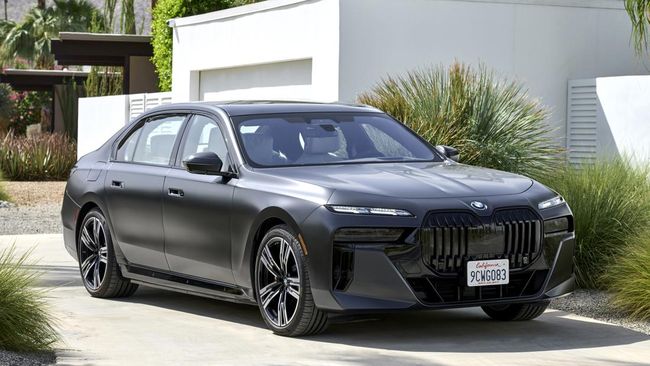Otodiva – BMW The i7 is known as a luxury electric sedan that is often used by presidents and high-ranking state officials. Its superiority in technology and design has made it chosen as the official vehicle at various state events. One proof of this is the use of the BMW i7 at the ASEAN Summit in Labuan Bajo and President Joko Widodo's vehicle at the APEC Summit 2022 in Thailand.
However, what makes the BMW i7 so special? Apart from the convenience, One thing that attracts attention is its fairly economical electricity consumption. In daily trials carried out by detikcom, The electricity consumption of the BMW i7 is quite efficient for a luxury electric car.
BMW i7 Luxury Specifications
Before talking about energy consumption, let's get to know more about the specifications of the BMW i7. This car has a length of more than 5,3 meters and width almost 2 meter, making it one of the largest sedans in its class. The BMW i7 is equipped with dual electric motors connected to the front and rear axles respectively, creating a powerful all-wheel drive configuration. No wonder, this car bears the code “xDrive” which is identical to the all-wheel drive system from BMW.
In Indonesia, The BMW i7 is offered in one variant, namely the BMW i7 xDrive60. This car is equipped with maximum power of up to 544 HP and torque reached 745 Nm. Even though it looks big, This car is capable of driving from 0 until 100 km/h only in time 4,7 second, thanks to the use of two efficient electric motors.
To support this performance, The BMW i7 is equipped with a large capacity battery, ie 101,7 kWh. With full battery, BMW claims this car can travel up to 625 km in ideal conditions. However, what about the real test results on the road?
BMW i7 Electricity Consumption: Efficient in Various Terrain
In theory, Average electricity consumption can be calculated by dividing the battery capacity by the claimed mileage. In the case of the BMW i7, 625 km divided 101,7 kWh yields a figure of approx 6,14 km per kWh. However, this is just an ideal number on paper, not test results on real roads with different traffic conditions.
Detikcom conducted trials on two types of terrain: urban roads and toll roads. On urban routes at an average speed of approx 25 km per jam, The BMW i7 records electricity consumption in the numbers 5,5 km per kWh. This result is quite impressive considering that urban traffic conditions are often dense and slow.
On the other hand, on toll routes with an average speed of approx 90 km per jam, The BMW i7's electricity consumption is actually more efficient, reach 5,8 km per kWh. This shows that this electric car can adapt well to various road conditions, provides efficient performance both in the city and on the highway.
One of the advantages of electric cars is their lower operational costs compared to fossil fuel cars. If converted into electricity costs, BMW i7 needs around Rp 2.000 to cover the distance 5-6 km. With PLN electricity rates currently in the range of Rp 1.444 up to Rp 1.699 per kWh, depending on the customer group, The cost of charging this car is very economical for a luxury sedan.







